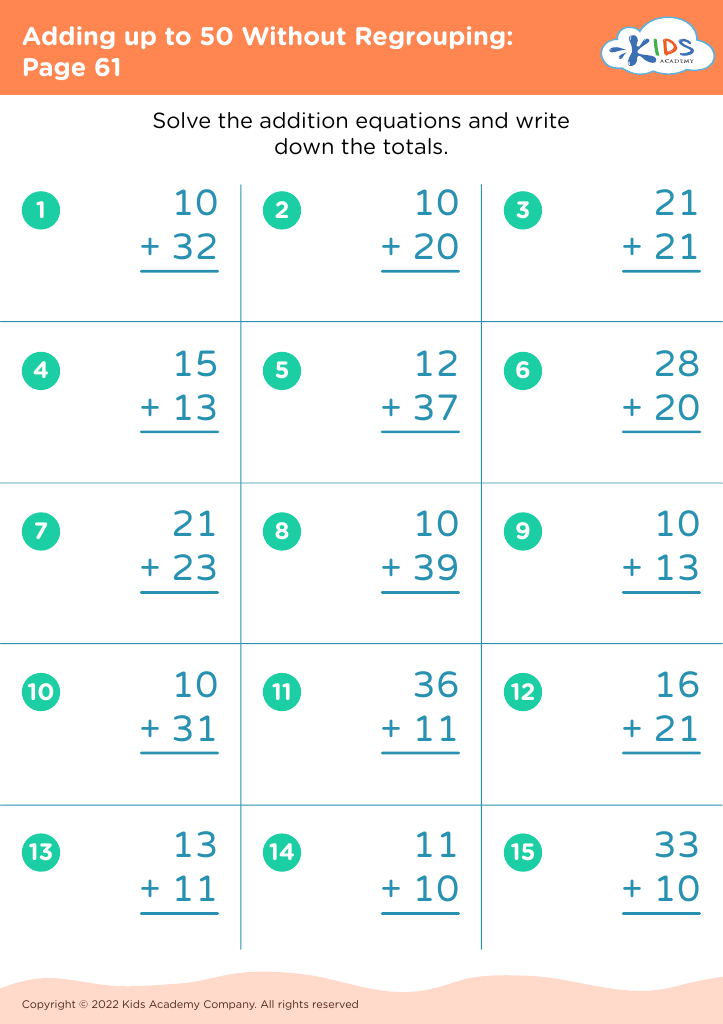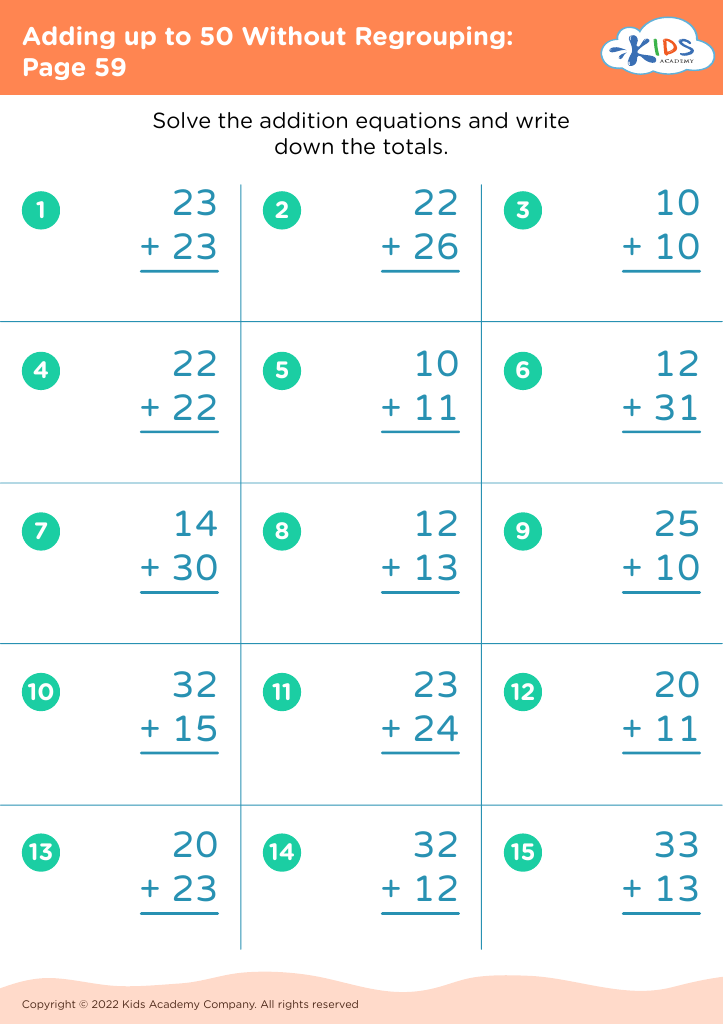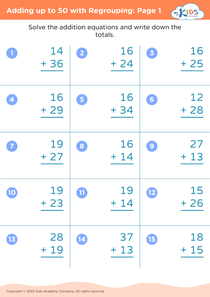Basic addition practice Adding up to 50 Without Regrouping Worksheets for Ages 6-7
3 filtered results
-
From - To
Looking to fortify your child's math skills? Our "Basic Addition Practice: Adding up to 50 Without Regrouping Worksheets for Ages 6-7" is perfect! Specifically designed for young learners, these printable worksheets offer engaging and straightforward addition problems to build confidence and precision. Your child will develop essential arithmetic skills while mastering sums up to 50 without regrouping. Ideal for classroom or home use, these activities blend fun with fundamental learning. Try it today and watch your child's math abilities flourish! Visit Kids Academy online to download your worksheets and explore more resources.
Parents and teachers should place importance on basic addition practice adding up to 50 without regrouping for children aged 6-7, as it serves as a fundamental building block in their mathematical development. At this formative age, mastering basic addition lays a crucial foundation for more advanced mathematical concepts. Regular practice not only enhances number sense and numerical fluency but also strengthens a child's confidence in handling numerical operations.
Working with sums up to 50 acclimates young learners to varied number ranges, ensuring they're comfortable handling smaller units with ease. Additionally, practicing without regrouping keeps the focus simple, allowing children to concentrate on understanding the concept of addition itself without the added complication of carrying over.
Such practice supports cognitive development, fostering critical thinking and problem-solving skills. It aids in memory retention, promotes attention to detail, and enhances the child's ability to follow sequential steps—a skill transferrable across numerous academic and daily life tasks.
By ensuring children grasp these basics early on, parents and teachers not only prepare them for future mathematical challenges but also instill enduring problem-solving attitudes and logical reasoning abilities that are essential for academic success and everyday functioning.













